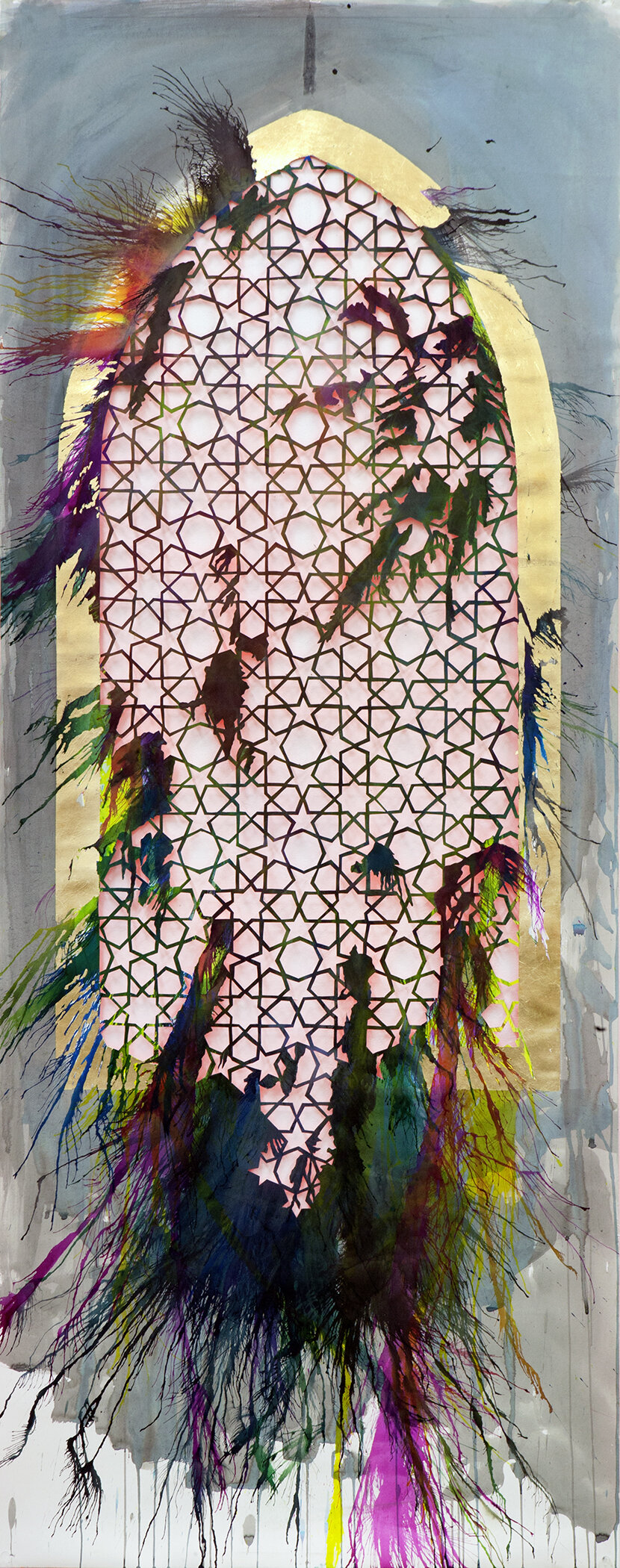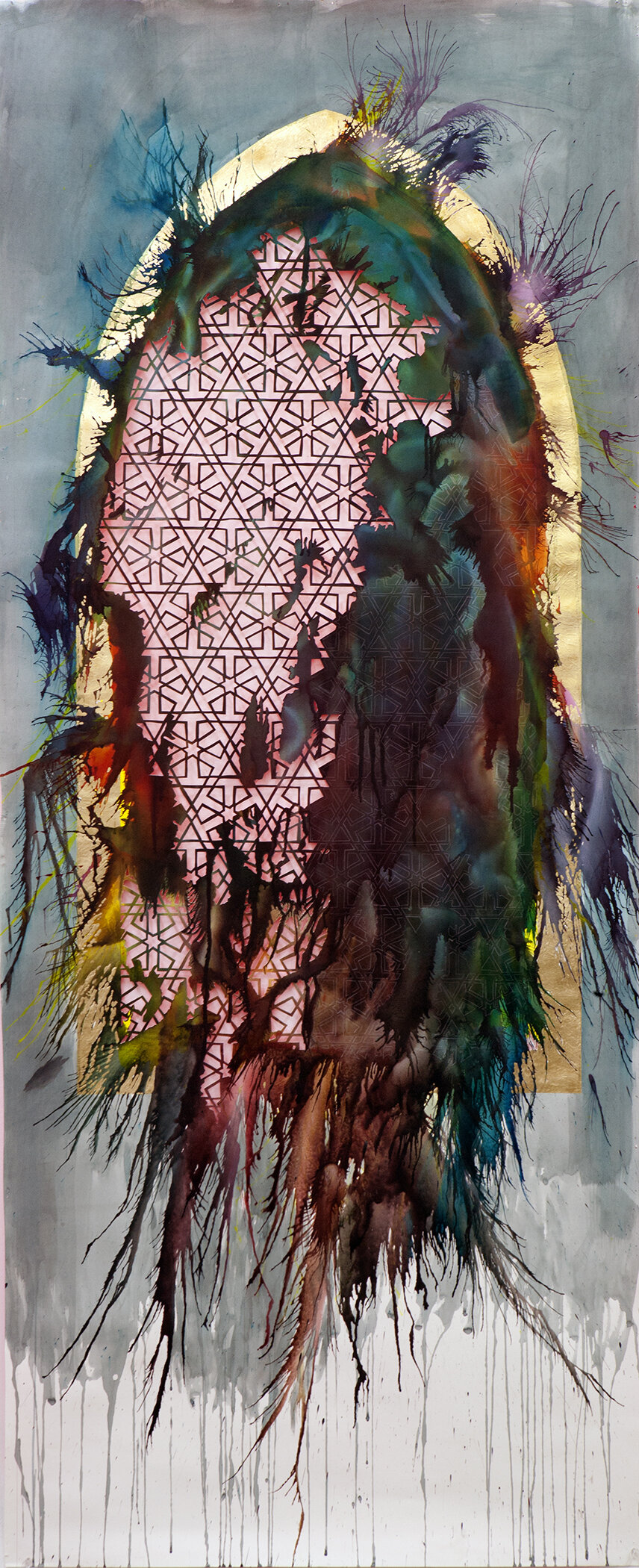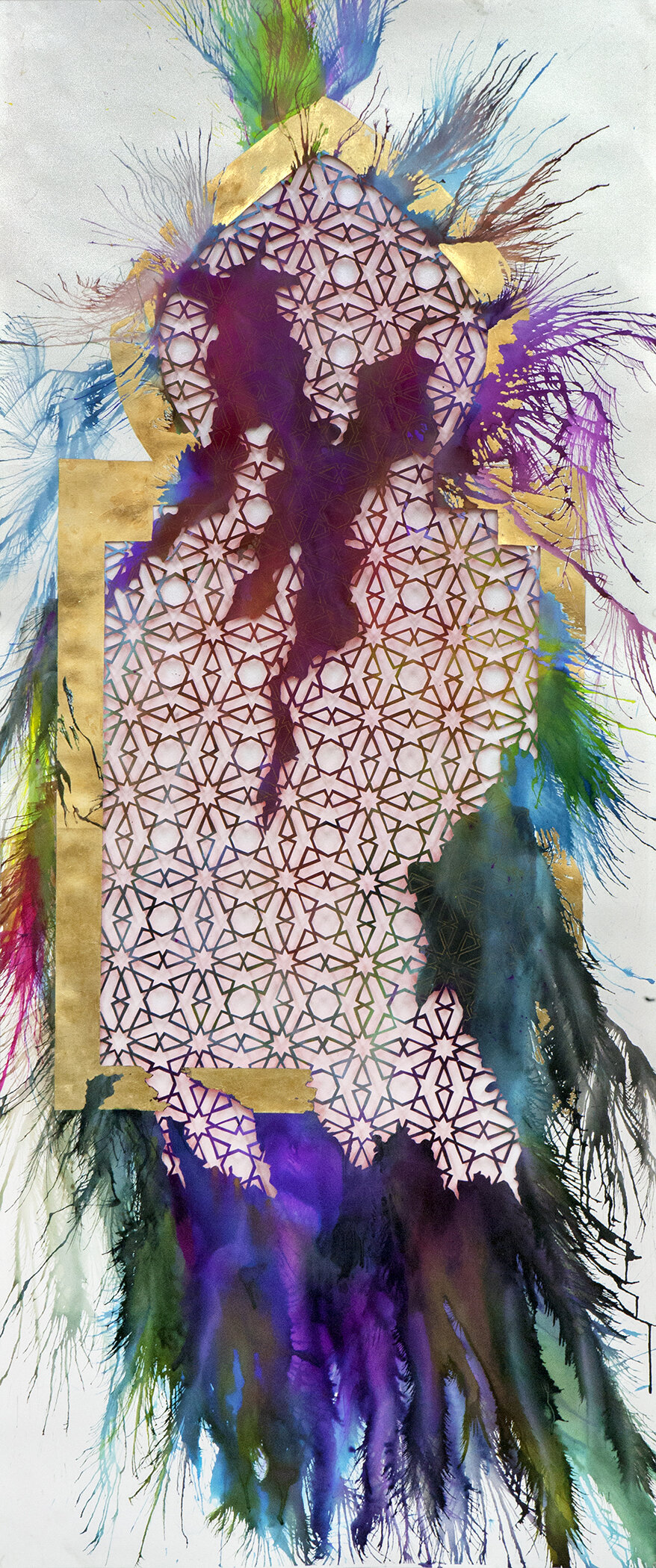Passages // Toroq, 2013
For Passages //Toroq, the artist presents works in two parallel series that address concerns of identity formation, highlighted predominantly in the wake of the mercurial Arab Springs. The title of the exhibition refers to both to the literary and historical passages that are quoted in the work as well as the social passageways or toroq forged by the revolution. Crucial to its people, the revolution defies the political, social and cultural standards that have been imposed by and grown out of colonization. Guirguis references historical developments in Egypt in order to have a clearer insight to the present. In this series of paintings the artist explores transitional spaces from historically relevant locations in Egyptian feminism – more specifically the life of Huda Shaarawi, a pioneer Egyptian feminist leader and nationalist, and the birth of the Egyptian Women's Union. By continuing her previous practice of hand cut works on paper, embedded with gold powder and gold leafing, Guirguis uses architectural references such as doorways, windows, and arches to convey the significance of site and the role it plays in establishing a radical ideology. The paintings include a representation of the door to Huda Shaarawi’s house (one of the last functional harems in the country and a gathering place for the Egyptian Women’s Union) and the Cairo railway station Bab El-Hadid, where she and her collegue Saiza Nabrawi removed their veils.
Passages // Toroq, 2013. Installation Shot.
Passages // Toroq, 2013. Installation Shot.
Passages // Toroq, 2013. Installation Shot.
Untitled (bab huda), 2013. Mixed media on hand-cut paper. 108 x 72 inches. Photo Credit: Panic Studio L.A.
Untitled (lahzet zaman), 2013. Mixed media on hand-cut paper. 108 x 72 inches. Photo Credit: Panic Studio L.A.
Untitled (bab el hadeed), 2013. Mixed media on hand-cut paper. 108 x 72 inches. Photo Credit: Panic Studio L.A.
Untitled (noor el-huda I), 2013. Mixed media on hand-cut paper. 73 x 36 inches. Photo Credit: Panic Studio L.A.
Untitled (noor el-huda II), 2013. Mixed media on hand-cut paper. 73 x 36 inches. Photo Credit: Panic Studio L.A.
Untitled (shubbak I), 2013. Mixed media on hand-cut paper. 72 x 29 inches. Photo Credit: Panic Studio L.A.
Untitled (shubbak II), 2013. Mixed media on hand-cut paper. 72 x 29 inches. Photo Credit: Panic Studio L.A.
Untitled (shubbak III), 2013. Mixed media on hand-cut paper. 72 x 29 inches. Photo Credit: Panic Studio L.A.
Untitled (shubbak IV), 2013. Mixed media on hand-cut paper. 72 x 29 inches. Photo Credit: Panic Studio L.A.
Untitled (shubbak V), 2013. Mixed media on hand-cut paper. 72 x 29 inches. Photo Credit: Panic Studio L.A.
Untitled (shubbak VI), 2013. Mixed media on hand-cut paper. 72 x 29 inches. Photo Credit: Panic Studio L.A.
















